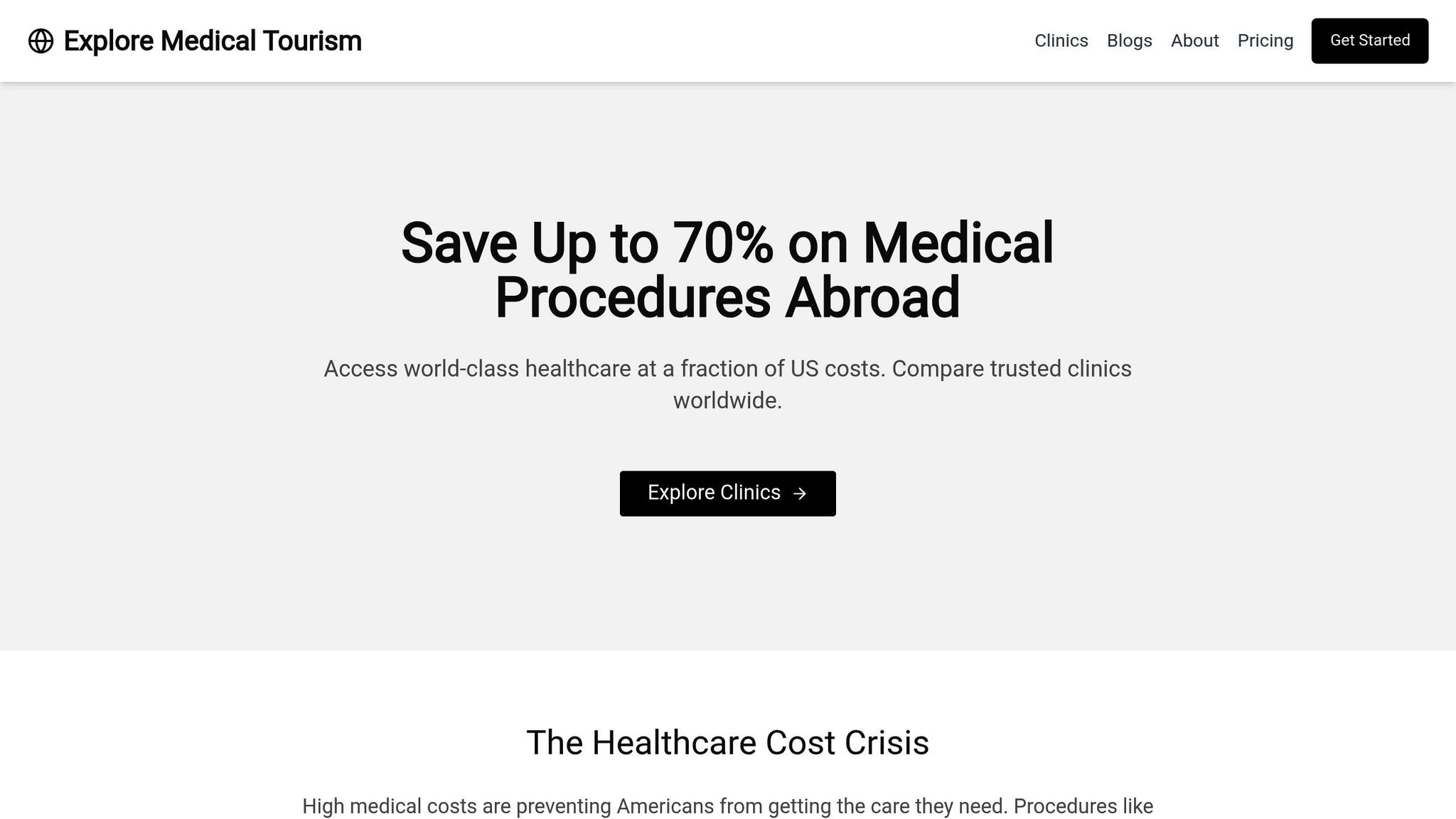Ultimate Guide to Mental Health Aftercare Abroad
Seeking mental health aftercare abroad can save you up to 70% in costs while offering high-quality care. Here's a quick breakdown of what you need to know:
- Choose the right provider: Use platforms like Explore Medical Tourism to find accredited clinics, compare costs, and book services.
- Plan 3-phase aftercare: Prepare before travel, maintain communication with providers, and explore local support options.
- Legal and insurance prep: Check your insurance coverage, translate medical documents, and understand patient rights abroad.
This guide covers everything from selecting providers to managing ongoing care, ensuring you stay on track with your mental health goals while living abroad.
119. The Secret Struggles of a Therapist Living Abroad: Time ...
Finding Quality Mental Health Providers Abroad
Choosing a mental health provider overseas involves evaluating credentials, accreditation, and communication skills. Here's what to focus on:
Provider Credentials and Accreditation
- Confirm that the provider holds a valid license and that the facility meets recognized accreditation standards.
- Ensure they follow international safety and quality guidelines.
Language and Cultural Compatibility
- Look for providers fluent in your language.
- Prioritize those experienced in working with individuals from your cultural background.
Using Explore Medical Tourism

Explore Medical Tourism can simplify your search by offering access to accredited clinics, detailed practitioner profiles, and clear pricing. The platform helps you compare options and book appointments with confidence.
Selecting a provider who aligns with your needs ensures a strong foundation for effective care. Once you've made your choice, focus on planning structured aftercare to maintain your progress.
3-Phase Aftercare Planning
Once you've chosen your provider, it's important to plan for aftercare in three stages to ensure you maintain progress from your treatment.
Pre-Travel Preparation
Before traveling, set up a clear communication plan between your providers at home and abroad. Decide on how you'll stay in touch (like email or telehealth), how often updates will be shared (such as weekly reports), and what to do in case of emergencies.
Provider Communication Plan
Establish a routine for staying connected with your providers. This includes scheduling regular check-ins, deciding who will handle any medication adjustments, and setting up a reliable way to reach someone quickly for urgent situations.
sbb-itb-3922076
International Aftercare Options
Continuing care while living abroad involves a mix of remote and in-person support. Once your aftercare plan is in place, decide which method works best for your situation.
Remote vs. In-Person Care: What to Consider
Remote care offers flexibility through secure video calls. This option allows for regular check-ins, medication adjustments, and talk therapy without the need to travel. On the other hand, in-person care may be necessary for urgent situations, hands-on treatments, or group therapy. This could involve visiting a local clinician or making a brief trip back to your home country.
Finding Support Groups and Local Resources
During Phase 3, explore local options for additional support. These could include mental health associations, hospital clinics, expatriate or English-speaking community groups, or even health services provided by your country's embassy.
Managing Ongoing Care
Create a crisis plan that includes local emergency contacts. Keep your treatment records and prescriptions securely stored, and use a privacy-focused method to share updates when needed.
Finally, make sure you understand the legal and insurance requirements to ensure your cross-border care is properly covered.
Legal and Insurance Requirements
Once your aftercare plan is set, take time to review legal and insurance rules to avoid unexpected expenses while abroad.
Insurance Coverage Checklist
- Check your policy details: Confirm what your insurance covers internationally, including limits and preauthorization rules for mental health services.
- Understand exclusions: Look for restrictions on overseas treatment, telehealth, or prescription coverage.
- Get written confirmation: Ask your insurer for written proof of coverage and keep claim submission instructions handy.
Navigating Cross-Border Patient Rights
- Informed consent: Ensure you have written consent forms that meet both U.S. and local healthcare laws.
- Privacy standards: Review how your personal health data is protected and shared between international providers.
- Know your resources: Identify local patient advocacy groups and legal options in case of disputes.
Handling Common Logistics
- Translate documents: Get certified translations of your medical records, treatment plans, and prescriptions.
- Check visa rules: Confirm visa requirements and any restrictions on how long you can stay for medical care.
- Plan for emergencies: Set up emergency repatriation plans and keep contact info for medical evacuation services.
Incorporate these details into your Phase 3 aftercare schedule to ensure everything runs smoothly.
Next Steps and Help
Help and Support Services
Once you've addressed aftercare and legal considerations, Explore Medical Tourism can help you find trusted mental health providers overseas.
- Browse verified providers by location and cost
- Access detailed profiles with clear pricing information
- Filter options based on services, certifications, and language preferences
- Communicate directly with providers through a secure messaging system
Use these tools to explore accredited providers and choose the one that aligns with your treatment needs.
